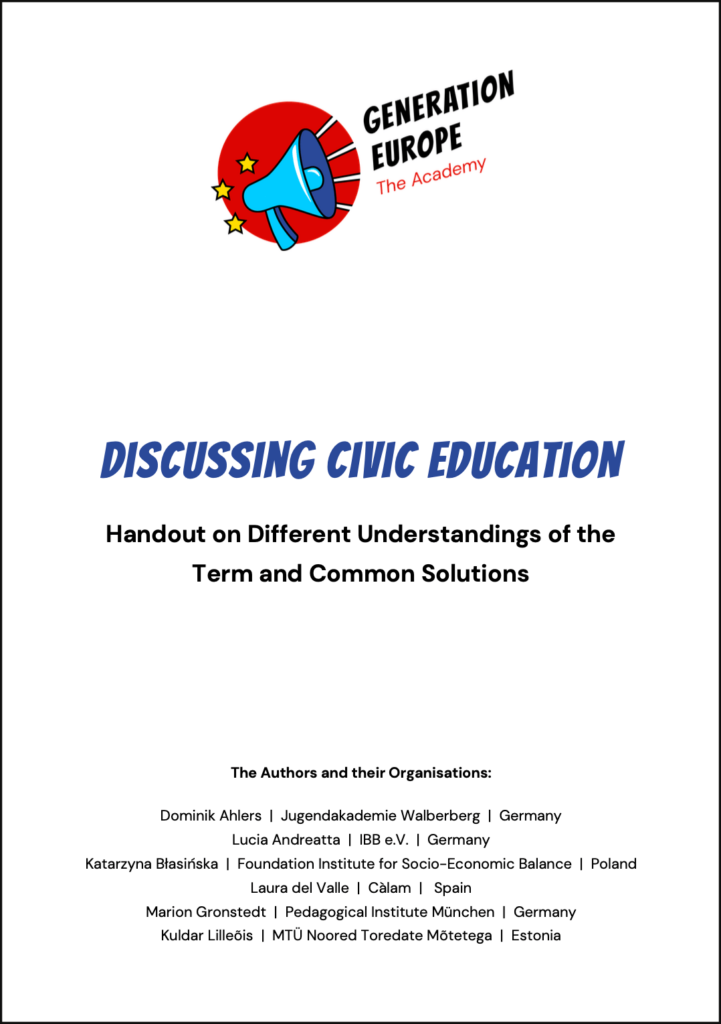Civic Education plays an important role in empowering young people to become active and engaged citizens. However, within the Generation Europe – The Academy network of 42 youth organisations across 14 European countries, there were different understandings of the term Civic Education. This made collaboration more challenging at times. A new handout documents the network’s efforts to build a common understanding by surveying participants, analysing their responses, and facilitating dialogue among the network partners:

D. Ahlers, L. Andreatta, K. Błasińska, L. del Valle, M. Gronstedt, K. Lilleõis:
Discussing Civic Education. Handout on Different Understandings of the Term and Common Solutions
Developed in the network of Generation Europe – The Academy | Published by: IBB e.V. | First Publication: March 2024
The process revealed diverse interpretations influenced by historical backgrounds, local contexts, and current issues that matter to the local participants. Discussions highlighted how practical experiences shape understandings in ways that go beyond academic research alone. Word choice and phrasing is important, especially in multilingual contexts, as meanings and connotations can shift through translation. To avoid misunderstandings and to enable discussions on eye-level, this must be taken into account and actively addressed. While a single, universal definition remained elusive, the process showed the different approaches to Civic Education within the network based on a common ground.
Rather than final answers, this handout marks the start of an ongoing process to build shared understanding among European youth workers around Civic Education. It recognizes the complexities involved and highlights the need to adapt to changing contexts. After all, there is a broad consensus in the network that a robust framework for Civic Education is vital for promoting and empowering responsible, engaged citizens and fostering strong democratic societies.

These products are the result of the KA2 Strategic Partnership Network for Active Improvement of Youth Work (NAIYW), co-funded by the European Union. Views and opinions expressed here are however those of the authors only and do not necessarily reflect those of the European Union, the European Commission or the European Education and Culture Executive Agency (EACEA). Neither the European Union, the European Commission nor the EACEA can be held responsible for them.
